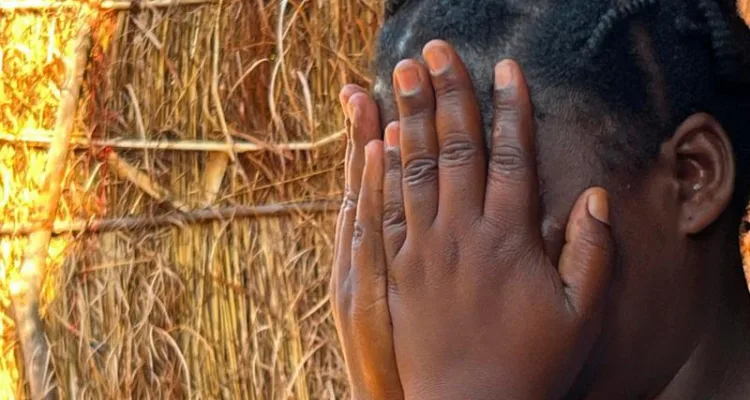
A 32-year-old Malawian woman who was trafficked to Oman to work as a domestic worker says she worked in slave-like conditions and was repeatedly raped by her boss and his friends.
The woman, only identified as Georgina, spoke to the BBC’s Africa Eye.
She used to be a business owner in Lilongwe but was approached by agents who told her that there were opportunities for her to make more money working as a driver in Dubai.
Convinced, Georgina packed her bags and left Malawi but she ended up in Muscat, the capital of Oman.
There, she was given to a family who made her work long hours, seven days a week.
“I reached a point where I couldn’t take it,” she says.
She broke down as she narrated that her boss repeatedly raped her and threatened to shoot her if she screamed.
“It wasn’t only him,” she says. “He would bring friends and they would pay him after.”
She added: “They later started raping me anally. I got badly injured. I became so distraught.”
In a desperate move to find help, Georgina used Facebook to raise awareness about the abuse she was facing in Oman.
38-year-old Malawian social media activist Pililani Mombe Nyoni saw her message and began to investigate.
Nyoni passed her number to Georgina and she was inundated with messages from other girls who were also facing abuse while working as domestic workers in Oman.
“That’s when I said: ‘I am going to form a [WhatsApp] group because this looks like human trafficking,'” Nyoni told the BBC.
The group had over 50 Malawian women working as domestic workers in Oman and the women sent voice notes and videos detailing horrific conditions the women were enduring. Many of them said their passports had been taken away.
In Oman, employers pay agents to bring them domestic workers. This makes it difficult for a worker to leave an employer because the worker is demanded to pay the employer money in the range of US$1000 to US$2000.
In her quest to help Georgina, Nyoni eventually connected with Ekaterina Porras Sivolobova, founder of Do Bold, based in Greece. Do Bold identifies victims of trafficking or forced labour in the Gulf countries and then negotiates with their employer for them to be released.
Georgina returned to Malawi in June 2021, after she had stayed in Oman for three months.
Following Georgina’s return, local organisations in Malawi started mounting pressure on the Malawi Government to provide funds for the safe return of the girls trapped in Oman.
The Malawian Government, which also worked with Do Bold, told the BBC it has spent more than $160,000 (£125,000) to bring 54 women back from Oman.
One of the women who returned is 39-year-old Blessings who had travelled to Muscat in December 2022, leaving her four children with her sister, Stevelia, in Lilongwe.
She told the BBC that she was severely burned in the kitchen of the home she was working in, but her employer would not let her return to Malawi.
She eventually returned in October 2023 after Malawi Government intervened.
“I never thought there would come a time that I would see my family again, my children,” Blessings told the BBC.
“I had no idea that there are people on this earth who treat others like slaves.”
However, one of the women identified as Ida Chiwalo died while in Oman.
The Malawi Government has since said that it developing rules “to ensure safe, orderly and regular migration that benefits migrants, their families and the country at large”.














